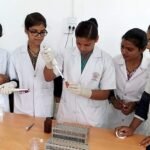Medical advancements have thwarted this league, and pain-free bladder cancer treatment now prevails to heal the root symptom over the invasive, painful cure.
Bladder cancer was not a remarkable disease encountered in the past but is recently gaining more attention with improvised diagnosis and treatment. Compared to women, aged men are more prone to the disease with prominent symptoms such as blood in urine, intense pain in the pelvic region, and irregular painful urination.
The aggravated concerns usually lead to choose for surgical treatments or bladder removal even though the symptoms are detected well at the preliminary stages. Medical advancements have thwarted this league, and pain-free bladder cancer treatment now prevails to heal the root symptom over the invasive, painful cure.
click here – PPC – You Gets What You Spends for
Non-Invasive Non-Surgical Allopathic Treatments
Generally, minimally invasive and laparoscopic surgeries are performed for the advanced stages to remove the bladder or the affected cells. It includes tumour resection or cystectomy, leading to extra efforts of urinal diversion and sciatica issues. Apart from them, oral medication or intravenous therapies have evolved to shoot the tumour cells without the need for a scalpel and tool. The major allopathic cures include:
- Chemotherapy: The high-dosage intravenous injections are administered in successive sessions. Chemo can be intravesical or systematic for the whole body. The former requires a urologist’s precision to insert the injection through the urethra and supply the medicine directly in the bladder. The systematic method administers the drug through nerves, and a proper combination of active compounds desirable to treat bladder cancer is injected. The former variety is not completely efficient as it can only kill the cells in contact, thus leaving out the ones spread to adjacent organs.
- Immunotherapy: Rather than killing the target tumour cells, immunotherapy strengthens the body and bladder to stand solid against the cancerous cells. Similar to chemotherapy, they are also injected into the bladder locally or given through veins. The research has found PD-1 protein cells responsible for cancerous sustainability, and the drugs target to weaken or entirely block their production. There are numerous chemical agents to act against PD-1 cells and their ligands. Their effects vary, and they are prescribed according to the diagnosed level of severity.
Allopathic medication, even through injections, has been found directing inevitable side effects. There is a significant amount of hair loss, fatigue changes in mood and appetite, or developing ailments like diabetes or mental issues.
click here – The Grammarly Group Buys – An Introduction
Natural Treatments Proposed
Recently Ayurveda and Homoeopathy also took a great stride to research and develop a cancerous cure. Their medication primary focuses on immunising the body to weaken the affected cells and their capability to dispel.
- Ayurvedic Medication: The science behind Ayurveda explains the cause of every disease to be the disproportionate levels of vatha, pitha and kapha. The oral medication combines multiple drugs containing herbal plant extracts which weaken the cancerous spread and strengthens the immune system. Herbal plants as holy basil, Indian ginseng and Commiphora are used. They are predominantly anti-oxidant and anti-biotic to help immunise the body internally.
- Homoeopathic Medication: This stream of medicine effectively targets the symptoms and starts with their cure. The pelvic and lumbar pains are targeted for quick pain relief at the primary stages. Cancer patients are often prone to mental stress, fatigue and psychological depression. Drugs help stimulate the vitality of the mind and body to strengthen the rest organs. Thus, they are mostly preferred in combination with allopathic treatments to avoid chemical drugs for managing side effects.
Non-injective oral medication among bladder cancer treatment is natural and harmless to the body without other side effects. They are mostly preferred substitutes for painkillers and extra medicines.
The non-invasive treatments aim to heal the body, thus seek the source of cancerous cells and progressively destroy their growth rate. Though they work gradually yet are highly effective for root treatment, a proper surgeon’s diagnosis is necessary to administer surgical operations if deemed necessary.





